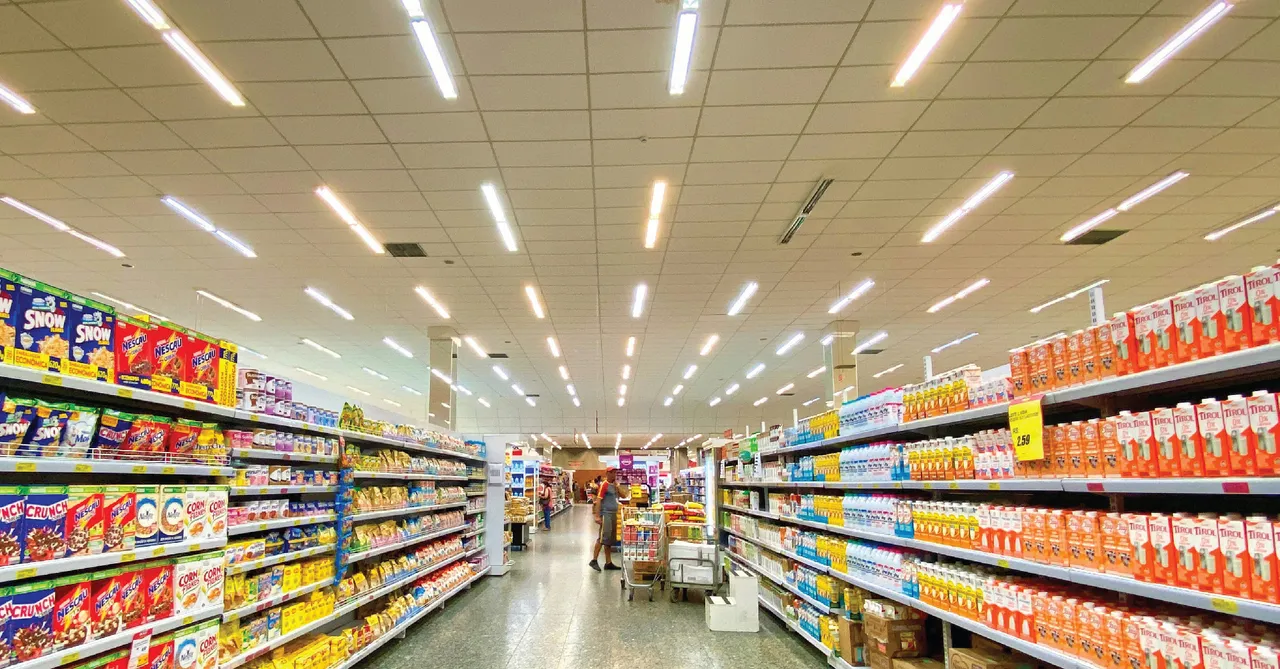Authors
Expertise

Nigeria’s Fast-Moving Consumer Goods (FMCG) sector continues to stand at the intersection of challenge and opportunity. In recent years, economic instability, currency volatility, and supply chain disruptions have tested the resilience of industry players . Yet, even amid this uncertainty, the sector remains remarkably adaptive, drawing strength from innovation, shifting consumer behaviors, and digital transformation.
Introduction
Nigeria’s Fast-Moving Consumer Goods (FMCG) sector continues to stand at the intersection of challenge and opportunity. In recent years, economic instability, currency volatility, and supply chain disruptions have tested the resilience of industry players[1]. Yet, even amid this uncertainty, the sector remains remarkably adaptive, drawing strength from innovation, shifting consumer behaviors, and digital transformation.
By the end of 2024, many FMCG companies found themselves grappling with a sharply depreciated naira, soaring interest rates, and inflation that crossed 28%. In an article by Nairametrics[2], it was reported that the FMCG market faced daunting challenges with the declining purchasing power of the consumers and rising inflation which saw the volume of transactions decline by 17.4%. These macroeconomic shocks significantly elevated the cost of doing business. Companies like PZ Cussons reported drastic profit declines, while finance costs across major FMCG firms ballooned to over ₦1 trillion, largely due to foreign exchange losses. Consumer purchasing power eroded further, as millions of Nigerians cut back on discretionary spending, prioritizing basic essentials over premium products.[3]
In response, businesses were forced to recalibrate. Multinationals like Shoprite and Pick n Pay restructured or exited unprofitable operations, while local players pivoted to smaller pack sizes and more affordable product offerings. The rise of “sachetization” became even more pronounced, as brands sought to meet consumer needs at lower price points. Digital commerce also grew significantly, with platforms like Jumia and Konga witnessing a surge in traffic as Nigerians turned to e-commerce for convenience and cost savings.
This report therefore outlines the performance of the sector and the major developments that has shaped Nigeria’s FMCG landscape in the first half of 2025, highlighting critical trends, and while making projections for the 2nd half of the year.
Regulatory and Economic Landscape
There has been a positive trajectory in the economic outlook of the FMCG sector. This was largely due to the volume of business activities that occurred within the sector in the first half of the year. There is an optimism that the volume of business activities in H2 would be favourable, due to the stability of the exchange rate in the last couple of months and reduced inflation which signals potential growth in economic activities. There is generally the expectation that the Naira to Dollar exchange rate which currently sits at N1,532/$1[4] will continue to appreciate.
At the start of 2025, consumers and companies within this side of the continent approached 2025 with a bit of cautious optimism. Perhaps due to the fact that in the face of inflation and currency volatility, there were signs of government and regulatory support for the hardships arising from their activities within the sector. For instance, the Central Bank of Nigeria (CBN) introduced a series of monetary interventions, including targeted foreign exchange support for manufacturers and a digital rebate scheme for exporters. These measures, along with the federal government’s broader fiscal reforms, such as the Accelerated Food Security and Commodities Stabilization Plan (AFSCSP), began to show early signs of impact.
At the same time, the regulatory environment became more assertive. The Nigerian Senate passed legislation restricting the export of unprocessed food crops, including maize, in an effort to address local shortages. While well-intentioned, such policies occasionally led to unintended consequences, including rising food prices and a spike in informal cross-border exports. NAFDAC and SON also introduced stricter standards around packaging and product traceability in 2025, signaling a renewed emphasis on consumer safety and supply chain integrity.
Market Trends
A lot of key players in the sector have bounced back and we’ve noticed an uptick in the reversal of prior losses suffered in the last 24 months. The improved performance and revenue growth may be due to increased consumer demand, tighter financial cost management and implementing policies to eliminate foreign exchange losses. Companies are beginning to report significant revenue growth, increased operating profit and little or no foreign exchange loss. Companies such as Bua Foods, Cadbury Nigeria. Dangote Sugar, Nigerian Breweries, UACN, Precso Plc etc have reported explosive revenue growth in H2.
The sector saw a lot of activities in the mergers and acquisition space in the last two years. 2025 has seen a decrease in M&A activities, largely due to a stable foreign exchange market. UACN’s acquisition of Chi Limited (a key player in the juice and dairy industry) from Coca Cola was the only significant acquisition that occurred in H1 2025
Despite the gains achieved in H1, there are still challenges plaguing the sector. High interest rates (which currently sit at 27.50%)[5], insecurity, insufficient power supply, high inflation rate (22.22%)[6] and poor infrastructure are factors that directly impact the operational stability and profitability of business operating within the sector.
Consumer behavior continued to evolve in 2025, shaped by economic pressures and rising health awareness. Nigerians increasingly favored locally made products, both for their relative affordability and availability. Brands that demonstrated empathy, offered value-driven pricing, and engaged authentically with communities gained market traction. In urban areas, demand rose for functional foods and wellness products, while digital-native Gen Z consumers began driving new trends through social media and influencer marketing.
The industry, however, still contends with persistent challenges. Counterfeit goods remain widespread, undermining brand trust and endangering consumer health.
Despite these headwinds, investment opportunities still abound. In early 2025, Coca-Cola reaffirmed its $1 billion expansion plans in Nigeria, focusing on local manufacturing and distribution in the northern corridor. Venture capital interest in tech-enabled FMCG startups has also grown, particularly those leveraging mobile platforms, last-mile delivery, and localized content. Pick n Pay, which exited Nigeria in 2021, has announced plans to re-enter the market through a franchise model tailored for underserved communities.
Technology is playing an increasingly central role in reshaping the sector. Artificial intelligence and blockchain solutions are being integrated into supply chains to improve transparency, reduce waste, and drive cost efficiencies. FMCG firms are also investing in green packaging solutions, with sustainability now a competitive differentiator. The rise of mobile payments and fintech platforms has enabled smoother transactions and expanded reach, particularly in semi-urban and rural areas.
Outlook for H2, 2025
It is expected that the sector will maintain the momentum gained in H1. It is expected that Nigeria will continue to experience a stabilized foreign exchange rate.
One of the constraints identified in H1 was high taxes. However, in June 2025, the President Bola Ahmed Tinubu signed four tax reform bills[7] into law with the aim of driving economic growth and improving business environment. These tax reform acts will have significant impact on the business operations of companies operating within the sector.
Historically, Nigeria has suffered a long-standing infrastructural deficit which has always had an effect on the cost of production, rural penetration, localized innovation. There has been a commitment by the present administration to address these challenges. It is expected that the ongoing rehabilitation of critical transport corridors such as Lagos–Ibadan and Abuja–Kaduna and the construction of the Lagos-Calabar Coastal highway, Sokoto-Badagry highway etc, will be vital in reducing distribution cost and unlocking market access.
To thrive in this evolving landscape, FMCG companies must continue to adapt. Prioritizing local sourcing, expanding micro-packaged offerings, and embracing digital tools will be essential. Firms should invest in data-driven marketing, forge strategic partnerships, and maintain operational agility. Regulatory engagement will also be critical, especially in shaping frameworks that address counterfeiting, standardization, and fair competition.
In conclusion, while the Nigerian FMCG sector remains vulnerable to economic shocks, it is also one of the most promising frontiers for long-term growth in Africa. The companies that will lead in 2026 will be those that balance resilience with innovation, specifically those that understand the Nigerian consumer not only as a market, but as a partner in shaping the future of commerce.
Read more...
[1] https://www.vanguardngr.com/2024/04/modern-retail-growing-in-nigeria-despite-tough-economic-cycle-report
[2] https://nairametrics.com/2024/08/14/inflation-fmcg-transaction-volume-in-nigeria-declines-by-17-4-in-2024-report/
[3] You may find our previous article at https://jee.africa/an-outlook-on-the-present-and-the-future/
[4] Available at https://www.cbn.gov.ng/rates/ExchRateByCurrency.html
[5] Central Bank of Nigeria (CBN) Monetary Policy Communique No.158
[6] See 5 above
[7] Nigeria Tax Act (NTA), The Nigeria Tax Administration Act (NTAA), The Nigeria Revenue Service Act (NRSA) and the Joint Revenue Board Act (JRBA)
Important Notice: The information contained in this Article is intended for general information purposes only and does not create a lawyer-client relationship. It is not intended as legal advice from Jackson, Etti, & Edu (JEE) or the individual author(s), nor intended as a substitute for legal advice on any specific subject matter. Detailed legal counsel should be sought prior to undertaking any legal matter. The information contained in this Article is current to the last update and may change. Last Update: October 1, 2024.










